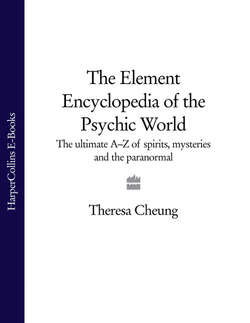Читать книгу The Element Encyclopedia of the Psychic World: The Ultimate A–Z of Spirits, Mysteries and the Paranormal - Theresa Cheung, Theresa Cheung - Страница 80
AUTOMATISM
ОглавлениеAutomatism is divided into two categories: motor automatism and sensory automatism. Motor automatisms are unconscious movements of the muscles, which seem to be directed by supernatural guidance. The most common forms of motor automatism are automatic writing and automatic painting or psychic art, and other creative pursuits such as speaking, singing, composing and dancing. Dowsing is a type of motor automatism, an extrasensory guidance influenced by the movements of the rod held by a dowser. Other types of motor automatisms include impulsive behaviour, such as deciding to do or not do something at the last minute without knowing why, sudden inhibitions and sudden physical incapacities.
Sensory automatisms are thought to be produced by an inner voice or vision and can include apparitions of the living, inspirations, hallucinations and dreams. Hallucinations were once assumed to be caused by physical disorders, but Edmund Gurney, an early psychical researcher and a founder of the Society for Psychical Research, established that paranormal visions and sounds can occur without the presence of physical disorders.
After automatic writing and drawing, automatic music composition is perhaps the most common form of automatism. An unusual case was that of a London woman called Rosemary Brown, who, although she had limited musical ability, began in 1970 to compose music that she said was channelled to her from dead composers such as Chopin, Liszt and Beethoven. Recordings were made, and the works did indeed resemble the various styles of the composers, but critics declared them not as good as definitive compositions by these musical geniuses.
Problems associated with automatisms include compulsion, obsession and a feeling of possession. The practice may grow until a person feels taken over by it. Some people talk of possession by demons, but psychologists say that the effects are created by paranoia, not demons.
Since ancient times, inspired activity has always been attributed to the divine, the supernatural or the spirits, but today’s view is that automatisms are products of ESP or secondary personalities who produce knowledge or information that has been repressed or forgotten.
